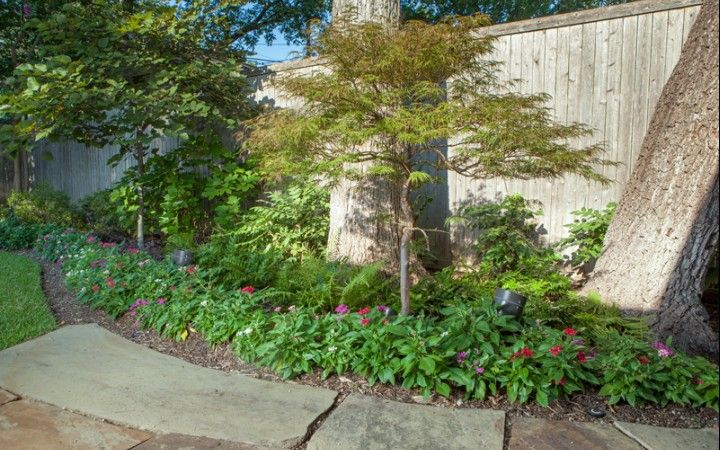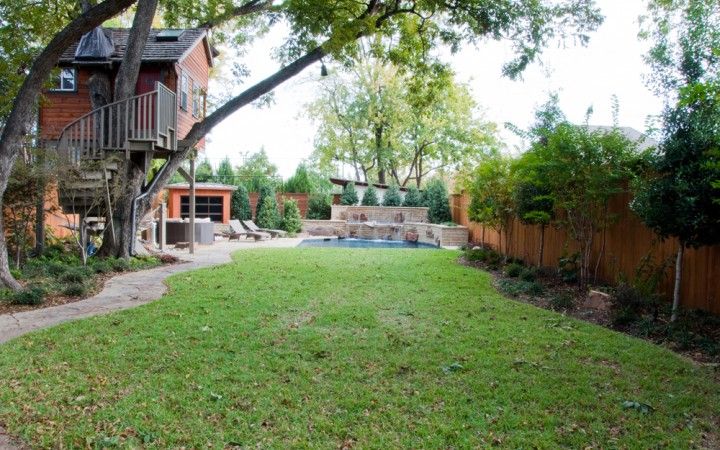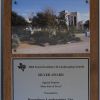Does your landscape need rejuvenation?
April 3, 2017 | By webadmin
One of the best ways to revitalize your landscape is to add a layer of compost each season to your beds as well as your lawn. An application of quality organic matter can significantly improve the health of your soil and therefore your plants. Roots grown in soil that is full of microbial activity take up nutrients and water more efficiently. This will lead to healthier, stronger, more beautiful plants.

Soils in the Dallas Ft. Worth area are generally very heavy clay with small particles that are prone to compaction. For trees, shrubs and perennials to grow well, clay soils desperately need some diversity to stimulate microbial activity. Getting various sized particles blended in and more life in the soil create pockets for air and water to go, which over time, helps change its overall texture.
How much compost to apply?
It depends. Keep in mind that organic materials continue to break down into smaller and smaller bits. This is why it's necessary to reapply on a regular basis. If you're starting out in a new house with a landscape that's been neglected, you'll need to work in a two to three inch layer. Begin with the area most important to you, such as where you intend to plant new shrubs or annuals, spots with poor drainage, or those closest to your front door.
TIP: Have you been mulching your beds faithfully each spring and fall? If so, you'll have more organic matter built up in your beds and less fresh compost will be necessary.
Your lawn needs fresh soil, too.
To rejuvenate your lawn soil, choose a fine screened compost that has few large wood particles and sprinkle in about a half inch to an inch. Try some aeration in heavily compacted areas before applying organic compost.

Are you a DIY’er?
While many of you might have a landscape service such as ours to manage the soil for you, those of you who don’t might be overwhelmed by the task. It's not necessary to replace all the soil in your beds with bagged amendments or to till down twelve inches to blend them. Simply by breaking up the top surface of the soil with shovel or garden fork, you can easily mix in compost poured or sprinkled over the surface. Be cautious around existing plant roots as deeper spades can cut or damage extensive root systems. Compost simply scratched into the surface of the soil can make a difference, particularly when combined with mulch.
